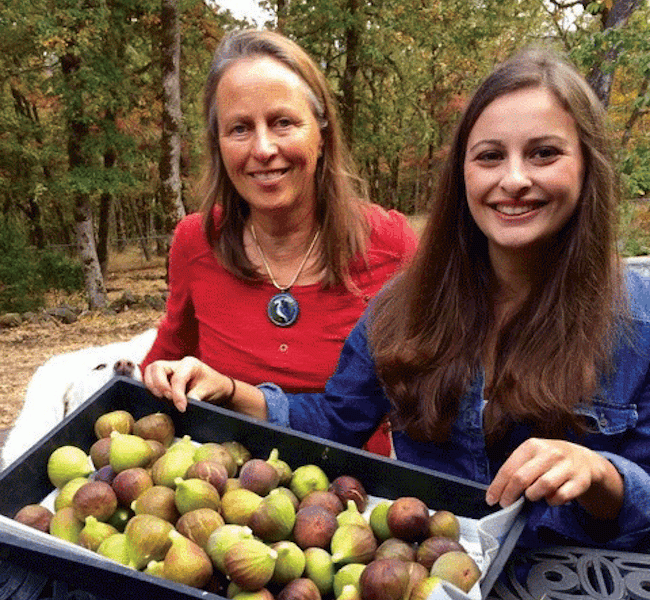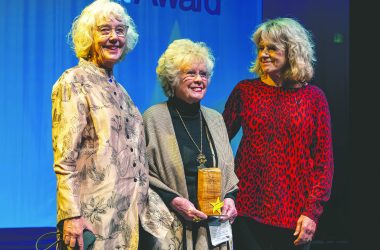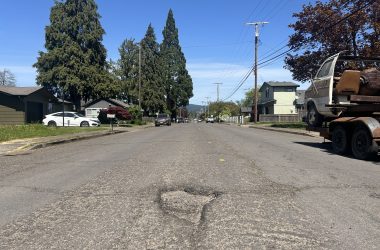 Nancy and Ruby Blum in 2018 at home near Creswell. Ruby is a health policy adviser for Dallas County in Texas.
Nancy and Ruby Blum in 2018 at home near Creswell. Ruby is a health policy adviser for Dallas County in Texas.
I am a biologist by education. I believe in data and intelligence more than I do in prejudice or magical thinking. Despite its shortcomings, I trust people who spend their lives studying things more than those who shoot their mouths off with unfounded opinions. Opinions are easy, but knowledge is hard, and there are many scientists, doctors, epidemiologists, and public health experts who plan and model and study the spread of infectious diseases.
While we exist in a bubble of safety, they do the heavy lifting, monitoring, and planning and preparing. They saw the handwriting on the wall.
One of them is our daughter, Ruby, from little old Lorane, Ore. She is a health policy adviser in Dallas, Texas. Ruby was part of the team of scientists, medical personnel, law enforcement, and public servants who brought Dallas through the Ebola crisis a few years ago.
In early March, Ruby had been monitoring the virus for over two months as part of her responsibilities for Dallas County. She said, “Get ready to stay home.” She suggested we have hand sanitizer and to start taking precautions. At that point, Oregon had no cases, and no one in the public realm suggested people stop moving about. Ruby said, “It’s pretty simple, Dad; you’re almost 65 years old and have high blood pressure; if you get it, you have a 12 percent chance of dying.”
We started washing our hands every chance we got, stopped going out, and started taking things more seriously. Except on March 6, when we went to a concert in Portland. I had bought the tickets for my wife Nancy’s birthday five months earlier. We attended the show, went to dinner at a neighborhood restaurant, and stayed overnight with young friends. It was awkward as we discussed the virus. By then, we were doing as instructed, washing our hands, not touching our faces, limiting social contacts, but it was over two weeks before Gov. Brown imposed the stay-at-home order.
In the few days after the concert, I went out to three places, once for a short meeting at the City of Eugene (by then maintaining six-foot social distance) and then to two of the large food stores for groceries. After all three outings, I washed my hands and sanitized like a madman.
Five days after the concert, I went to bed and didn’t feel right. I seldom get sick, so the awareness of something going on in my upper respiratory tract worried me. The next day I developed a low fever, persistent headache, and then extreme fatigue (I was digging fence posts and couldn’t do one without stopping).
I knew I had the virus. At that point, I wasn’t sure which I feared most, the virus or the wrath of my daughter. When I called my doctor, the nurse said, “monitor things but don’t come in for a test unless things get worse.” I’m not sure if it was possible to get a test in Lane County at that point, and in the entire state of Oregon, barely 200 tests had been conducted even though to our north COVID-19 was ravaging the greater Seattle area.
I slept, stayed hydrated, and threw a few prayers into the mix. After five days, I started feeling better. I knew I was okay. The only symptom to persist was a nasty cough that continued for two weeks.
Sincerely, I understand why people are eager to “open up the economy,” especially if they are out of work, but needing to go back to work does not invalidate the science of the virus.
Every day we read who has died from COVID-19. We read their ages and whether they had underlying conditions – as if having underlying conditions softens the horror. By the end of next week, COVID-19 will have killed more Americans than the Vietnam War. I know it is only a matter of time before someone I know joins that list, and when they do, there will be no comfort in knowing they had underlying conditions.
And so it goes. On Day 42, I got a tetanus shot in the parking lot of my doctor’s office, and it felt like a drug deal. Two masked adults were looking sideways, one with a hypodermic needle in their hand, the other hoping he didn’t pass out.
On Day 43 we worked all morning building a fence and cleaning the barn, then we went to Blue Valley Bistro and bought food via the drive-thru. We didn’t need the food, but we miss Seth and Melissa and seeing Nicky in the window and Suzanne too, was a treat. Then we drove around for two hours looking at homes and gardens and hills and trees and taking in all that surrounds us.
To be continued …








